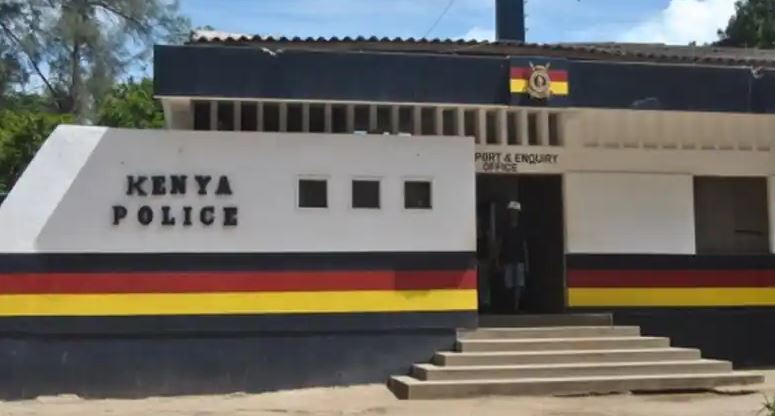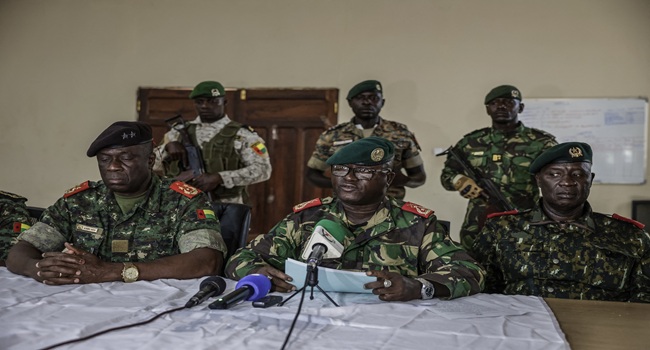Kenya records 17 deaths in police, prison custody amid rising abuse concerns

The organisation said the deaths occurred across police stations, remand facilities and prisons in at least 10 counties, including Nairobi, Nakuru, Murang’a, Siaya, Mombasa, Kakamega and Busia.
At least 17 people have died while in police or prison custody between 2024 and 2025, with reports pointing to injuries, neglect and possible abuse, the Independent Medico-Legal Unit (IMLU) has revealed.
The organisation said the deaths occurred across police stations, remand facilities and prisons in at least 10 counties, including Nairobi, Nakuru, Murang’a, Siaya, Mombasa, Kakamega and Busia.
More To Read
- LSK condemns police brutality, demands action over assault of woman and torture of teen in Narok
- IPOA investigates alleged assault of minor in Narok's Narosura police custody
- Family demands justice after kin dies in police custody in Migori County
- Questions abound after missing Nairobi man is found dead in Mombasa police cell
- Police officers under fire as family rejects autopsy report on man’s death inside Kenol station
- Family rejects police suicide account in Kenol station death
IMLU disclosed that it facilitated at least 80 autopsies linked to protest-related incidents.
“During the year 2025, we have documented 59 deaths through forensic documentation and 17 custodial deaths,” the organisation said.
The postmortem examinations carried out by IMLU’s network of forensic pathologists uncovered alarming patterns of injury and neglect.
Causes of death included cardiorespiratory failure and cardiogenic shock due to multiple injuries, suggesting physical assault, as well as asphyxiation and hanging, in some cases pointing to possible staging of suicide.
Other victims suffered severe head injuries with brain contusions and subdural hematomas, indicating repeated blunt-force trauma and delayed medical care.
“Each of these deaths represents not only a personal tragedy but also a failure of the state to uphold its duty under Article 26 of the Constitution, the right to life, and Article 29, which protects every person from torture and cruel, inhuman, or degrading treatment,” IMLU said.
The organisation noted that families are often left without answers, investigations stall, and justice remains elusive.
To address the gaps, IMLU, with support from the International Rehabilitation Council for Torture Victims (IRCT), convened a three-day forensic training workshop for pathologists and lawyers drawn from its national network.
The workshop, facilitated by Prof Dr Djordje Alempijevic, former head of the Forensic Department at Belgrade University and member of the UN Subcommittee on Prevention of Torture, and Prof. James Lin, Istanbul Protocol Programme Coordinator at IRCT, seeks to strengthen the capacity of Kenyan experts in forensic documentation, investigation, and reporting of torture and deaths in custody.
“Forensic documentation is the cornerstone of accountability; it transforms pain into proof and evidence into justice. It ensures that deaths in custody are not dismissed as ‘natural’ or ‘unexplained,’ but are investigated using internationally recognised standards such as the Istanbul Protocol, for investigating and documenting torture, and the Minnesota Protocol for investigating unlawful deaths,” IMLU said.
Despite the existence of the National Coroner Services Act (2017), which mandates the establishment of an independent agency to investigate unclear or reportable deaths, its operationalisation has been delayed due to administrative gaps, notably the absence of a Cabinet Secretary for Justice as stipulated in the law.
IMLU said this has left investigations under the jurisdiction of police and state pathologists, undermining impartiality and perpetuating impunity.
IMLU, together with the Police Reforms Working Group–Kenya (PRWG-K) and the Department of Justice, said it continues to advocate for the urgent amendment and operationalisation of this Act.
“A functioning coroner system would ensure that every death in custody is independently investigated, that families receive timely information, and that perpetrators are held accountable,” the organisation said.
IMLU also reaffirmed its commitment to preventing and responding to torture and related violations.
“By strengthening the capacity of pathologists, lawyers, and justice actors in forensic documentation, Kenya moves closer to a future where accountability is not an afterthought, but a standard, where every life lost in state custody is treated not as a statistic, but as a call to action for justice and reform,” the organisation said.
Top Stories Today















































